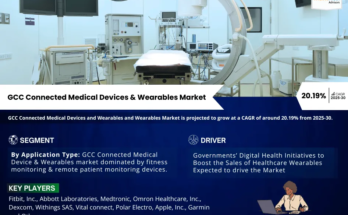Establishment of vascular access is required in case of medical emergency and life-threatening traumatic injuries for the delivery of medications and for fluid replacement, including crystalloids, blood, and blood products. The potential use of this technique called as, intraosseous infusion was established in 1920’s as a rapid, safe and effective method of vascular access through the bone marrow when intravenous attempt fails to establish vascular access. Historically intraosseous infusion (IO) was recommended only in children’s younger than six years whereas now use of IO techniques in patients of all ages is supported by guidelines for cardiopulmonary resuscitation.
Currently there are many intraosseous devices available in the market for the rapid administration of fluids and medications directly into the vascular systems. These devices are inserted directly into the medullary space of bone, and range from manually inserted spinal needles to the impact drivers and drill powered devices. The manually inserted needles have been approved in the U.S. since 1940’s. In addition site of insertion also plays an important role in defining the overall approach in instraosseous infusion. Various sites available for intraosseous insertion includes sternum, distal and proximal tibia, distal femur and calcaneum. The device is quickly inserted and correct placement of the device is confirmed by the flow of intravenous fluid into the device. If at all extravasation of the fluid around the insertion site occurs, the device is removed to prevent development of compartment syndrome. However aspiration of bone marrow represent another approach to confirm the correct placement of the device. One of the fastest and most reliable means of administrating the emergency fluids in the sternum is sternal intraosseous infusion (IO) allowing easy vascular access.
Click to get Brochure: https://www.futuremarketinsights.com/reports/brochure/rep-gb-1516
Intraosseous Devices Market: Drivers & Restraints
Intraosseous infusion is primarily used in pre-hospital’s pediatric emergencies where intravenous delivery of fluids and medications is difficult. Increasing prevalence of various diseases forms and growing number of traumatic surgeries are expected to create demand for these devices in the forthcoming years. Additionally introduction of technologically advanced intraosseous devices in the market such as EZ-IO which allows rapid and more reliable emergency vascular access than the available manual techniques in the market. Continual training of medical and nursing staff and well defined protocols regarding proper handling of the device required for effective and safe care of patients undergoing intraosseous venous access is also leading to the rising adoption of these devices in hospitals.
One of the main complication while inserting the intraosseous device is extravasation of fluids and medications into soft tissues which can lead to compartment syndrome (a condition resulting from increased pressure within a confined body space). Other side effects associated with the use of these devices includes iatrogenic fractures, growth plate injury, infection (cellulitis) and osteomyelitis.
Intraosseous Devices Market: Overview
With rising number of traumatic events coupled with failure of intravenous vascular access is expected to fuel the demand for intraosseous devices in the near future. Intraosseous infusion is safe and effective technology in case of cardiopulmonary resuscitation where other route of administration fail to deliver the required effect. Other vascular access procedures such as peripheral venous access is a time consuming procedure thus making it not feasible for cardiopulmonary resuscitation. The intraosseous devices market is expected to grow at a healthy pace over the forecasted period.
Intraosseous Devices Market: Region-wise Outlook
On the basis of region presence, intraosseous devices market is segmented into seven key regions: North America, Latin America, and Eastern Europe, Western Europe, and Asia pacific excluding japan, Japan, Middle East and Africa. North America and Europe are the biggest markets for the intraosseous device market. Owing to rapid launch of various technologically advanced intraosseous devices by big manufacturers and increasing incidences of various cardiac disorders are some of the factors expected to pull the growth of these devices in the North American market. In addition macroeconomic factors such as FDA approvals are also expected to increase the adoption rate of such devices in the developed countries. Also big players such as, Pyng Medical Corp., are entering the Asia pacific market by expanding its distribution network which is expected to create market opportunity for the intraosseous device market in Asia Pacific region.
Intraosseous Devices Market: Key Players
Some of the key market players in the intraosseous devices market are Pyng Medical Corp., PerSys Medical, Aero Healthcare, Vidacare Corporation, Carefusion Inc., Cook Medical Inc.
The research report presents a comprehensive assessment of the market and contains thoughtful insights, facts, historical data, and statistically supported and industry-validated market data. It also contains projections using a suitable set of assumptions and methodologies. The research report provides analysis and information according to categories such as market segments, geographies, types, technology and applications.
The report covers exhaustive analysis on:
- Market Segments
- Market Dynamics
- Market Size
- Current Trends/Issues/Challenges
- Competition & Companies involved
- Value Chain
Regional analysis includes
- North America (U.S., Canada)
- Latin America (Mexico. Brazil)
- Western Europe (Germany, Italy, France, U.K, Spain, Nordic countries, Belgium, Netherlands, Luxembourg)
- Eastern Europe (Poland, Russia)
- Asia Pacific (China, India, ASEAN, Australia & New Zealand)
- Japan
- Middle East and Africa (GCC, S. Africa, N. Africa)
The report is a compilation of first-hand information, qualitative and quantitative assessment by industry analysts, inputs from industry experts and industry participants across the value chain. The report provides in-depth analysis of parent market trends, macro-economic indicators and governing factors along with market attractiveness as per segments. The report also maps the qualitative impact of various market factors on market segments and geographies.
Intraosseous Devices Market: Segmentation
Intraosseous Devices marketis segmented on basis of technology, route of administration, end user and geography:
By Technology
- Manual
- Automatic
- Impact-Driven
- Powered Drill
By Route of Administration
- Sternum
- Distal and Proximal Tibia
- Distal Femur
- Calcaneus
- Head of Humerus
By End User
- Hospitals
- Ambulatory Surgical Centers
- Cardiology Clinics
Click to get the in-depth TOC of this Report: https://www.futuremarketinsights.com/toc/rep-gb-1516
Report Highlights:
- Detailed overview of parent market
- Changing market dynamics in the industry
- In-depth market segmentation
- Historical, current and projected market size in terms of volume and value
- Recent industry trends and developments
- Competitive landscape
- Strategies of key players and products offered
- Potential and niche segments, geographical regions exhibiting promising growth
- A neutral perspective on market performance
- Must-have information for market players to sustain and enhance their market footprint
About Future Market Insights (FMI)
Future Market Insights (FMI) is a leading provider of market intelligence and consulting services, serving clients in over 150 countries. FMI is headquartered in Dubai, and has delivery centers in the UK, U.S. and India. FMI’s latest market research reports and industry analysis help businesses navigate challenges and make critical decisions with confidence and clarity amidst breakneck competition. Our customized and syndicated market research reports deliver actionable insights that drive sustainable growth. A team of expert-led analysts at FMI continuously tracks emerging trends and events in a broad range of industries to ensure that our clients prepare for the evolving needs of their consumers.
Contact Us:
Future Market Insights
Unit No: AU-01-H Gold Tower (AU), Plot No: JLT-PH1-I3A,
Jumeirah Lakes Towers, Dubai,
United Arab Emirates
For Sales Enquiries: [email protected]
For Media Enquiries: [email protected]
Website: https://www.futuremarketinsights.com


